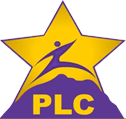About PLC Charter Schools
PLC Charter Schools is committed to providing a learning environment rich in the arts, where students achieve academic and social excellence while solving real-life problems in a cooperative manner. We strive to teach all children the importance, value, and worth of:
- Care for self: Integrity, Honesty, Respect
- Care for others: Kindness, Dependability
- Care for community: Civic Responsibility
Our Vision
To instill a desire in students to become life-long learners, empowered with the ability to have a positive effect on the global community.
Our Mission
To establish a Student-Family-Teacher-Civic relationship that develops and sustains a Professional Learning Community where arts and technology combine with academics and real life skills to educate and enrich the whole individual.
Operating Principles of PLC Charter Schools
- We believe that every student has the ability and the right to learn. We believe that learning takes place best when educators, students and parents share a common set of educational values and goals.
- We believe and are committed to the application of technology as a tool in every classroom.
- We believe our academic and arts programs will develop the inner disciplines and individual responsibilities needed to live productive lives.
- We believe a student’s self-esteem and individuality will be developed as their artistic gifts are fine-tuned through various arts programs.
Positive Interactions and Positive Feedback
Daily interactions between staff and students provide the best opportunities for encouraging appropriate and desirable behavior and promoting the development of good habits. Staff at the school will strive to interact with students in a friendly, supportive manner at all times. Staff will attempt to interact with each student four times more frequently when the student is engaged in appropriate behavior than when the student is behaving inappropriately. In basic terms, for a negative interaction a staff member has with a student, the staff member will try to have four positive interactions to encourage the student.
Positive interactions will include greeting students, talking to students, making eye contact, giving a “thumbs-up”, pat on the back, smiling, and overtly praising students when such honors are deserved. When praising students, staff will attempt to provide them with specific information about which behaviors are contributing to success. For example, a staff member might say, “Amanda, you have been very responsible for remembering to return the pen you borrowed” or “John, thank you for standing quietly in line.”
Leadership
The School’s highly skilled and experienced leadership team is eager to serve you and your child through the provision of a world-class education. Your satisfaction is the School’s highest priority, so we hope you will contact the School’s leaders with any questions or concerns.
